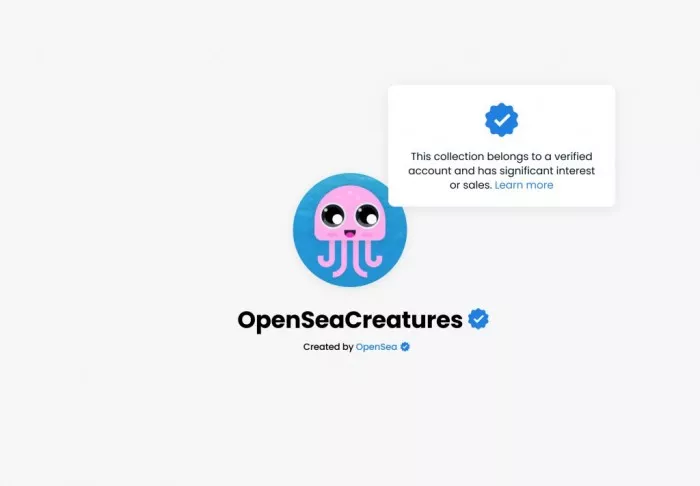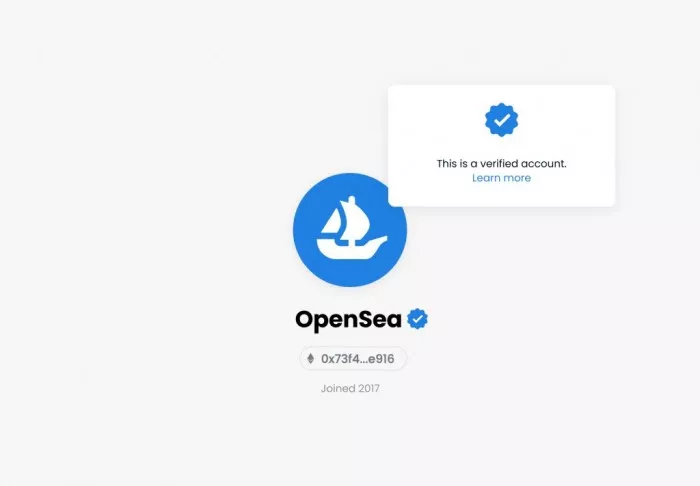Opensea announced in a series of blog posts today that the company is launching the digital market function of "improving authenticity". These updates include a new system to detect and delete forged NFTs and comprehensive modifications to the account verification process "Copymints" are tokens that steal other NFTs and have proved to cause identity security problems on platforms such as opensea.

Last year, the platform banned two series that imitated the bored ape Yacht Club NFT by flipping pictures. Although the owners of NFT are recorded on the blockchain, counterfeits are still rampant. In February, opensea said that more than 80% of the illegal items it deleted were created with its free coin making tools.
Opensea said it is implementing a new two-part copy detection system, noting that copying makes it more difficult for users to find real content. The company said it would use image recognition technology to scan NFTs on the platform and compare them with real collections for flipping, rotation and other variants, while human censors would also review deletion suggestions.

"We are committed to deleting replicas and providing space for substantial value-added transformation," the blog wrote. Opensea said it had begun removing violations and would expand the process in the coming weeks.
Opensea's account verification will also be updated. The invitation only authentication app will be available to accounts with at least 100 eth numbers, and the company said it plans to expand its eligibility soon. When the verified account has and meets the transaction volume of 100eth, the collection can obtain a blue badge.
Opensea has introduced other security features in recent months because of reports of fraud and fraudsters on or related to the platform. In February, the company announced a validated customer support system in response to fraudsters posing as opensea employees and obtaining people's cryptocurrency wallets.
Learn more: